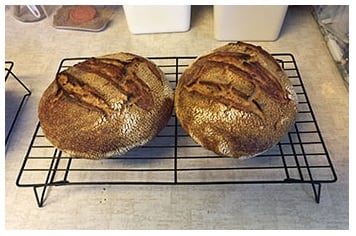The food giant partnered with the Kansas-based Land Institute (TLI) and the University of Minnesota in 2014, to develop the new grain trademarked as Kernza for commercialization.
“This partnership with General Mills and investment by Cascadian Farm, promises to be a significant boost, helping take this planet-friendly grain to the next level of viability as a food ingredient,” said Dr Lee DeHaan, lead scientist at TLI.
Cascadian Farm’s input will allow TLI-funded farmers to plant Kerzna on commercial-scale fields as well as an ace test plot on the Cascadian Farm home farm in Washington. The Cascadian Farm crop will be closely monitored to see how it fares in the temperate rainforest ecosystem.
Eco-friendly
A wild relative of wheat, Kernza’s dense root system extend over 10 feet, which is twice as deep as conventional annual wheat. With Kernza, farmers won’t need to till the soil and replant every year.
According to TLI, the long roots benefit the soil by helping store nutrients and water, while preventing erosion and reducing the leaching of nitrogen into ground and surface waters.
Kernza’s developers also believe it could reduce greenhouse gases from food production by trapping significant amounts of carbon in the soil.
Putting Kernza on the market

TLI researchers claim the superwheat is protein packed, has higher levels of folate, calcium, lutein, fiber, Omega-3 fatty acids, selenium and vitamin B-6 than whole wheat and a relatively low gluten content. It also lends itself particularly well as an ingredient for cereal and snacks.
General Mills plans to incorporate it into its Cascadian Farm organic brand, which is being showcased at Natural Products Expo West 2017 (running from March 8-12 in California).
The Cheerio’s maker is also urging other food manufacturers to help create a market for Kernza.
This is the second – but much larger – move to commercialize Kernza.
Last year, Patagonia Provisions teamed up with Hopworks Urban Brewery to roll out Long Root Ale, which is primarily sold through Whole Foods in the US.

